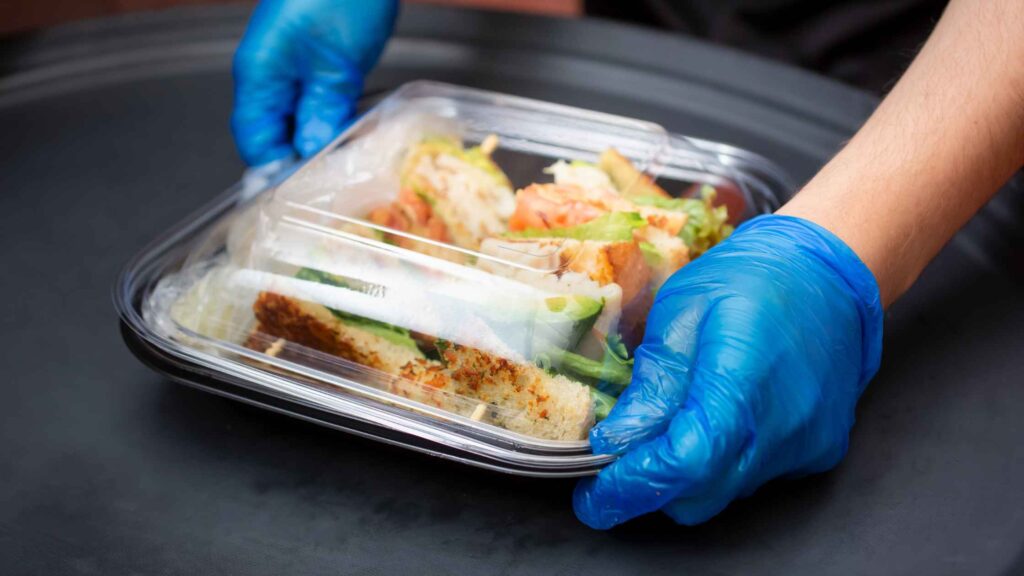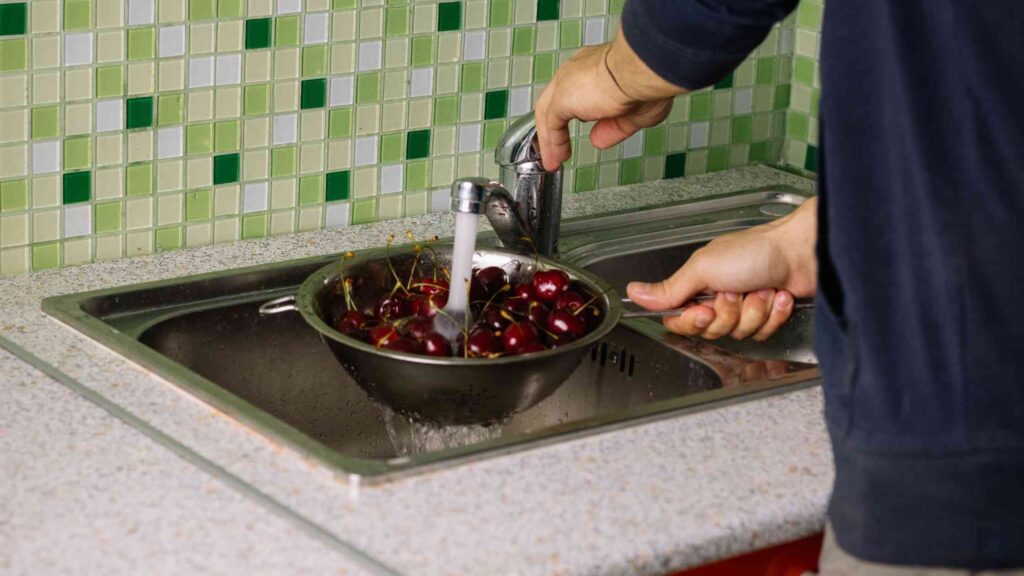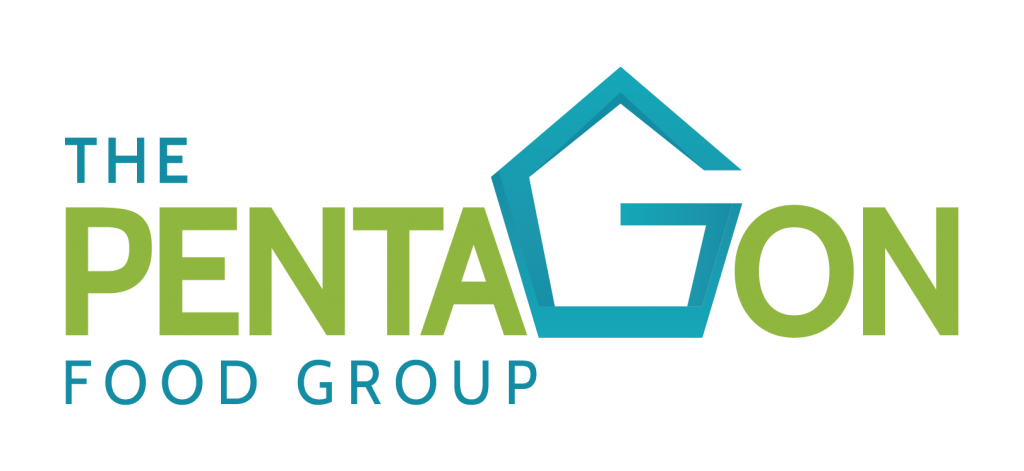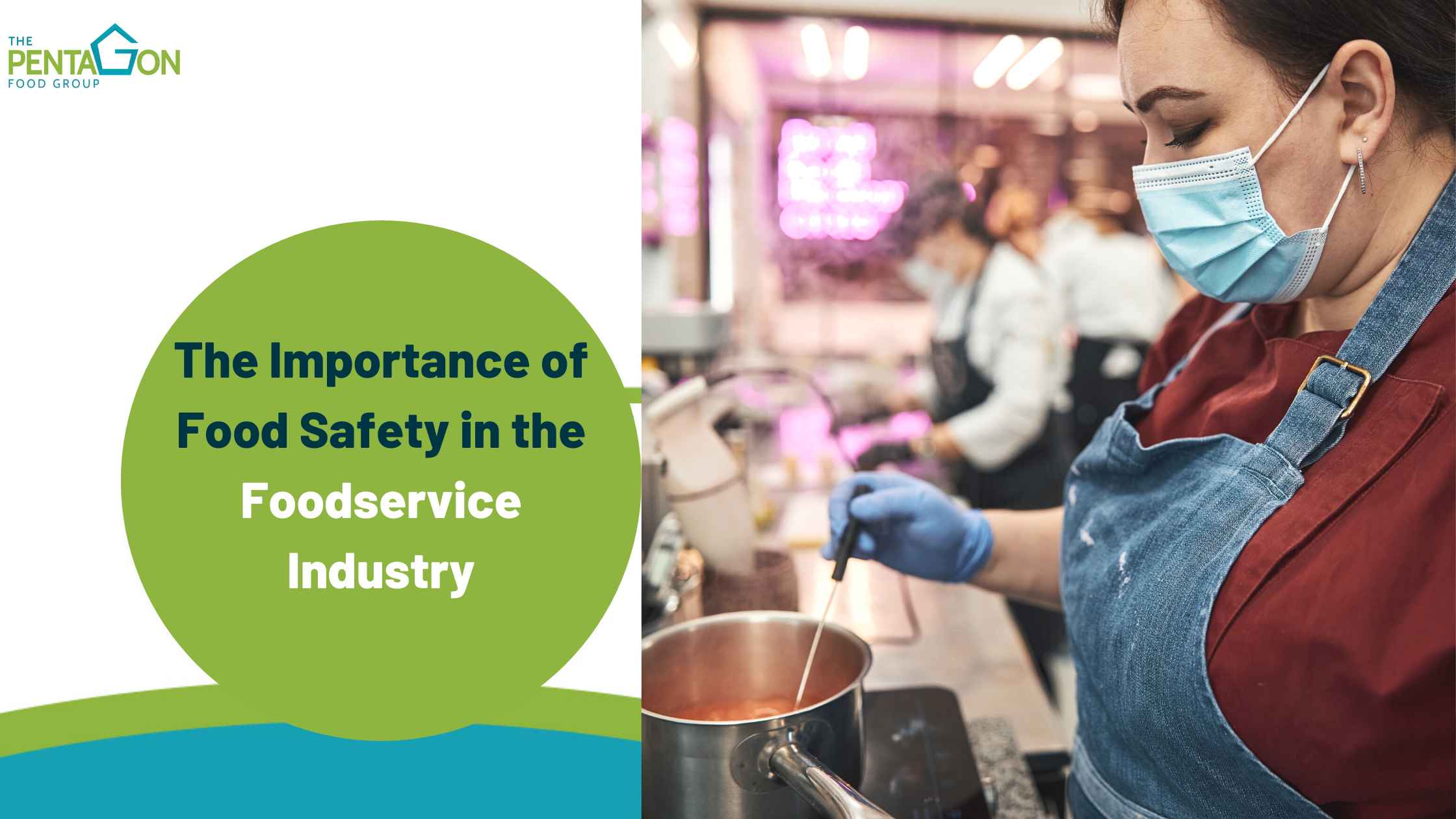The foodservice industry is one of the most important industries in the world, as it provides jobs and sustains many people’s livelihoods. But what about food safety? Food safety is critical to your business’s success, so it’s important that you know how to protect yourself and your clients from any possible dangers.
Food safety definition
Food safety is the concept of safe food preparation, storage and handling. It encompasses a wide range of aspects that ensure the quality and safety of foods by preventing contamination during production, transportation and sale. Food safety also refers to maintaining good hygiene practices in order to minimize risks associated with foodborne diseases (e.g., salmonella poisoning).
Food safety is a key element for any business involved in selling or serving food because it affects both financial performance as well as customer satisfaction levels with your products/services. If you want your customers to continue coming back again and again then you need them to trust what they’re buying from you; if they do, then their demand will increase which brings them back around again!
What Factors Affect Food Safety?
- Food safety practices.
- Food handling methods.
- Storage of food commodities, such as fresh produce and meats, should be in a clean and dry place away from other foods or surfaces that could contaminate them. This includes refrigeration, freezing and canning operations as well as warehousing facilities for perishable items such as dairy products or fruits and vegetables.
- Preparation methods include thawing frozen foods before cooking them, minimizing cross-contamination between raw meat/poultry products being cooked on the same surface at one time without washing between uses, cleaning utensils after each use (including knives), using separate equipment when processing similar types of foods such as tomato sauce vs spaghetti sauce vs marinara sauce, etc. so there is no danger of cross contamination happening due to proximity between machines used during the production process, sanitizing equipment after usage (e.g. stovetop burners); maintaining proper temperature levels within working spaces where food is being handled; rotating ingredients frequently enough to prevent build-ups which may cause spoilage over time periods longer than usual consumption cycles would allow.
The Importance of Food Safety in the Foodservice Industry
Food safety is a critical component of the food service industry. It helps prevent foodborne illness, which can lead to severe health problems and even death. Food safety also helps distributors ensure that their products are safe for consumption before they reach consumers.
Distributors should always be on the lookout for new trends in food safety as well as new regulations that might affect distributors’ operations in some way or another.
Here are few points about the importance of food safety.
1. Protection from foodborne illnesses and other food-related injuries
Foodborne illnesses are a serious problem in the foodservice industry. They can be caused by bacteria, viruses, parasites, or toxins and they can cause severe illness and even death if not taken care of quickly enough.
Food safety regulations require that all food handlers (cooks, servers) are trained on how to properly handle food so that it’s safe for consumption by customers. This training includes learning about common pathogens found in raw meats or products that could cause people who eat them sick if ingested raw.
2. A better way of living
Food safety is a top priority for many people, including the general public and foodservice Distributors. The Food and Drug Administration (FDA) tracks all foodborne illnesses in the US.
The benefits of keeping your business safe extend beyond simply providing your customers with healthy food choices; they also include protecting them from illness or injury due to contaminated products or unsafe conditions at work sites.
Food safety professionals can help ensure that their organization meets all legal requirements for safely handling foods like meat and poultry products by following guidelines outlined by the FDA’s Food Safety Modernization Act (FSMA).
3. Customers expect safe food
Customers want safe food, and the foodservice industry must provide it.
It’s your responsibility to provide safe food. You can do this by taking steps to ensure that all ingredients are thoroughly washed, rinsed and sanitized before they enter your facility.
4. Sustainable food production
Sustainable food production is important because it protects the environment. The more sustainable a resource, the less pollution it causes by being used as part of your supply chain. Sustainable agriculture also helps keep our water clean by using less fertilizer per acre and reducing over-irrigation (when you water too much). It also means that farmers can use less machinery or chemicals on their fields so they don’t need as many pesticides or herbicides to keep weeds from growing out of control.
Sustainable food production saves money for both consumers and businesses: you’re getting better quality food at lower prices when you buy locally grown produce instead of imported goods produced thousands of miles away! Not only will this save time spent traveling between different states/countries but it could mean fewer health problems due to poor air quality during transportation which leads directly into higher healthcare costs later down the road.
The Need for Proper Training and Education
When it comes to food safety, training is essential. If you don’t train your employees on the importance of food safety and how to use proper equipment, they won’t know how to handle an incident when it occurs. They also won’t be able to understand what steps should be taken in case there is a problem with their foodservice operation. Training should include:
- An overview of what constitutes good hygiene practices (including hand washing).
- A description of how employees can prevent cross-contamination between different types of foods.
- Instructions on how to identify and store potentially contaminated foods properly.
Requirements and Standards
Standards are an important part of maintaining food safety. The Food and Drug Administration (FDA) has established standards for everything from meat to seafood to produce, but you should also be aware that there are other organizations that have their own sets of guidelines for food safety. For example, the Department for Environment Food & Rural Affairs (DEFRA) has its own code of practice called Hygienic Food Production Standards which deals with issues like hygiene in kitchens and equipment handling/storage as well as sanitation of ingredients before use in dishes such as salads or dressings.
You should make sure that your standards reflect those from other organizations so you don’t get caught out by any discrepancies between them or simply because they might change over time!
Here are a few other points to follow for food safety:
1. Use Disposable Gloves Correctly

- Use disposable gloves properly. The right size and fit are important, as are the proper cleaning of your hands before putting on the gloves.
- Wash your hands after removing disposable gloves, but don’t use them as a substitute for hand washing!
- Don’t touch your face with disposable gloves on (or even while wearing them).
2. Wash Your Hands

- Hand washing is the most important thing you can do to prevent foodborne illnesses.
- The Centers for Disease Control and Prevention (CDC) recommends that everyone wash their hands with soap and water for at least 20 seconds before handling food, after using the restroom, or caring for someone who has been sick. You should also wash your hands before cooking or eating raw meat and poultry; prepare food in a contaminated area; change diapers; touch pets not intended as part of their diet; clean fruits and vegetables while they are still Unripened; handle animal waste on farms where animals are raised in close quarters with humans (for example pig farms).
3. Remember to Clean and Sanitize

To ensure your foodservice operation is maintaining the highest standards of sanitation, it’s important to follow a set of guidelines. This includes using the right cleaning products, using the right methods, using the right equipment and sanitizing methods. You should always use fresh water when washing hands or dishes or rinsing fruits and vegetables so they will not be contaminated from previous users’ hands or dishes (for example if someone has touched raw meat).
4. Distributors should always be on the lookout for new trends in food safety
Distributors should always be on the lookout for new trends in food safety as well as new regulations that might affect distributors’ operations in some way or another. Distributors need to keep up with the latest food safety news, which is why it’s important for them to stay informed about what’s going on with their industry.
IMPACTS OF FOOD SAFETY ON FOOD ESTABLISHMENTS
Food safety is critical to the health and profitability of distributors, so it’s important that they know how to protect themselves and their clients from any possible dangers. Food safety is an issue that affects everyone in the food service industry from distributors who sell food products directly to restaurants and cafeterias, to those who prepare meals for customers at home or work.
It’s easy for owners or managers of a business with high turnover rates to lose track of what’s happening within their kitchens; however, if you want your company’s reputation intact when potential problems arise, then there are some things you need to do right away:
- Have policies in place regarding employees’ behavior around food preparation areas so that everyone knows exactly what behaviors are acceptable;
- Make sure all employees understand these policies before allowing them access to those areas. Ensure proper training has been provided for new hires about proper hygiene practices when handling raw ingredients such as meats/fish/eggs etc.
Read More: Tips for Managing Inventory in a Food Service Industry
Conclusion
Food safety is a serious concern for the food service industry because it can lead to serious health problems for consumers.
Food safety is critical to your business’s success also, so it’s important that you know how to protect yourself and your clients from any possible dangers. There are many ways to ensure food safety in the foodservice industry, and it’s important to follow these guidelines to keep your customers safe.






